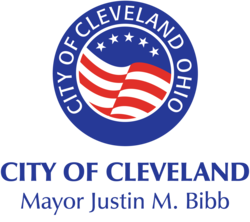Thursday, January 31, 2019
Can Blockland succeed at making Cleveland an Innovation Hub? Thoughts from a startup founder who’s lived in hot markets
by Karen Leventhal is the founder of Verdant Trade
At the “Building Blockland What’s Next”? Forum, Charles Stack of Flashstarts made the case that Cleveland is the perfect place for Blockchain because Blockchain is like Cleveland: it’s focused on collaboration and cooperation. In short, it’s based on community. According to a panelist, of the many cities vying to be a Blockchain hub, Cleveland was the only one to bring a broad-based community coalition to the table.
Can the Blockland project to make Cleveland an innovation hub? I have some experience that might shed light. I founded a tech company and have headquartered in some very hot start up ecosystems, including Los Angeles and Austin. I recently moved back to Cleveland (my hometown) after 20 years living out West.
The strengths of those two other cities is an openness to new ideas and experiences. This is borne out in data collected about the psychological predispositions of certain regions. Stack confirms that openness to new ideas is a weak spot for Cleveland. Cleveland’s venerable institutions tend to be risk adverse and attached to traditional approaches.
This is a problem since the very DNA of high growth entrepreneurship is the willingness to fall on your face and eat it, big time. Silicon Valley knows this.
Why is the Cleveland ecosystem adverse to risk?
I’d like to spitball a potential diagnosis. Openness to new experience comes partly from the belief that you can handle whatever comes your way. It’s hard to move boldly into the unknown when confidence is wounded from past struggles. When manufacturing departed en masse, other cities pulled ahead. It can be intimidating to move forward in this environment.
However, Cleveland has a strength that the other ecosystems I’ve been in don’t offer: a sense of community and strong backs (both metaphorical and literal). If this region could combine their fierce sense of community with an openness to new ideas, it would be unstoppable.
One of the cures for low confidence is to realize the cards that other people (or regions) hold are not necessarily any better than yours and maybe even worse.
Those Other Communities Can’t Offer Most Startups Relevancy
The vast majority of start-ups that go to those hot locations to seek fame and fortune are chewed up by the machine because they are not grounded in any community that cares about their success.
One of the things that struck me at the “Blockland” panel is that an audience member pressed the panelists on how the initiative would benefit vulnerable Cleveland populations. No one would ask that question in L.A. or Silicon Valley or even Austin. The start-up systems there are impersonal and professional. They aren’t particularly concerned about a lasting economic or civic impact on the community.
In fact, many a pitch competition has taught me that those hot ecosystems barely care about your business model at all. They just want to know they can make money at it. It’s a transaction. That’s it.
In reality, most entrepreneurs HATE this mindset and the machine that breeds it. In fact, they are starting to rebel against it by turning down growth capital. Why? Because the essence of the entrepreneurial mindset is not an obsession with becoming rich (you can go to Wall Street for that) or about cancerous level company growth. They have an obsession with the realization of an idea that could impact someone or something.
Several locations I’ve lived in have tried to model themselves after Silicon Valley down to taking a version of their moniker: Silicon Prairie, Silicon Beach, Silicon Hills. I was encouraged to hear from panelists that Cleveland wasn’t trying to be Silicon Valley with its enormous income inequality. It’s trying to be something else. Cleveland can start to capitalize on entrepreneur’s rebellion for substance (and sanity) if you can show interest in how their business affects a community.
Those Other Communities Can’t Help Startups Succeed in Hard Times
The other reason people go to those places and get chewed up is because they are sold a story that success comes easy. Silicon Valley crafts a narrative where all the success of Amazon or Uber can be summed up in a one-hour podcast about the genius of founders who had a few lightbulb moments.
But the environment that bred that narrative of success, one gushing with venture capital, is over. Venture capitalists have largely stopped funding early stage companies. Seed capital investments have dropped by half. So now most entrepreneurs are faced with the struggle of building a young company without much help.
The hot ecosystems also tend to worship “the beautiful idea.” Frankly, a lot of that idea worship is not backed up with actual support, which I call “muscle”- people who pitch in. An idea takes a minute to form. But it can take 10-20 years of hard labor to build a company. It’s built with the daily efforts of people who tend the initiative. The volunteer force (1700 people?!) that stepped up to support Blockland is an example of what is possible in Cleveland and perhaps not possible elsewhere.
Think about it this way: the unicorns of the past decades, riding on “trust me” hype have been created with billions of venture capital. When the capital dries up, what does Silicon Valley have to say about operating in adverse conditions? After all, they aren’t known for circling round with community-based volunteer support.
Cleveland might have lessons to teach in this environment. Its blue-collar underpinnings understand that real work is HARD. Hype alone can’t create steel. If you can put in the muscle, which the Cleveland community is known for, behind the ideas that others might only pay lip service to -- you can win.
Those Other Communities Can’t Offer Community
Those hot ecosystems have other problems when they can’t offer capital. First, “disrupters” can’t afford to pay the high rent. Multiple friends, including highly successful ones, have privately confessed to me, they are thinking of parachuting out of those hot towns. They can’t afford a mortgage, child care, good schools, or a good meal at a restaurant. They see the writing on the wall.
I faced those same financial pains. That was one of the reasons I chose to come back to Cleveland. However, it was not the only reason.
There was something I was hungering for that I couldn’t get there. One day I asked myself, “do I want to die here?” And I had a vision of only four people attending my funeral. No community would miss me.
This intangible longing is important to understand because it’s a contrast to what Cleveland can offer. I had a good network of friends in Los Angeles, but we clung to each other like survivors of the Titanic sharing a piece of boat wood in the open ocean. People live with daily insecurity in those competitive markets. You are just one among millions. Many people are scared that there will be no one, no community there to catch them if they face bad luck. They may not be wrong.
Can Cleveland Support New Ideas? Can New Ideas Support Cleveland?
The basic need of entrepreneurs, underneath all the mania, is to matter and they matter through their ideas and the fruition of them. They want to be needed, and their ideas are what they have to offer you.
However, in those hot urban startup markets, the mentality is: you need them, they don’t need you. You don’t matter unless you happen to become phenomenally successful very quickly.
Cleveland is a city looking to make its mark on the national stage. I believe the city has the same emotional hunger to matter. If the city has the vulnerability to admit that it NEEDS entrepreneurs and innovators, which I believe it does, then it can attract the innovators most honest and humble enough to admit they need the community and support Cleveland has to offer and the ones who are willing to give to the community instead of just taking from it.
Economic conditions are starting to force people out of those overheated cities. Can Cleveland be a soft landing for those refugees, and will it be open to their new ideas? And can their ideas support Cleveland?
Karen Leventhal is the founder of Verdant Trade, a business to business (B2B) e-marketplace for trading ethically manufactured wholesale goods.






Becky Morgan - February 01, 2019
Great post Karen. I've found businesses (my focus is on manufacturing, so that's the majority of my data) in Cleveland to be very conservative and risk averse. Long term thinking with near term action can make a huge difference for all of us!